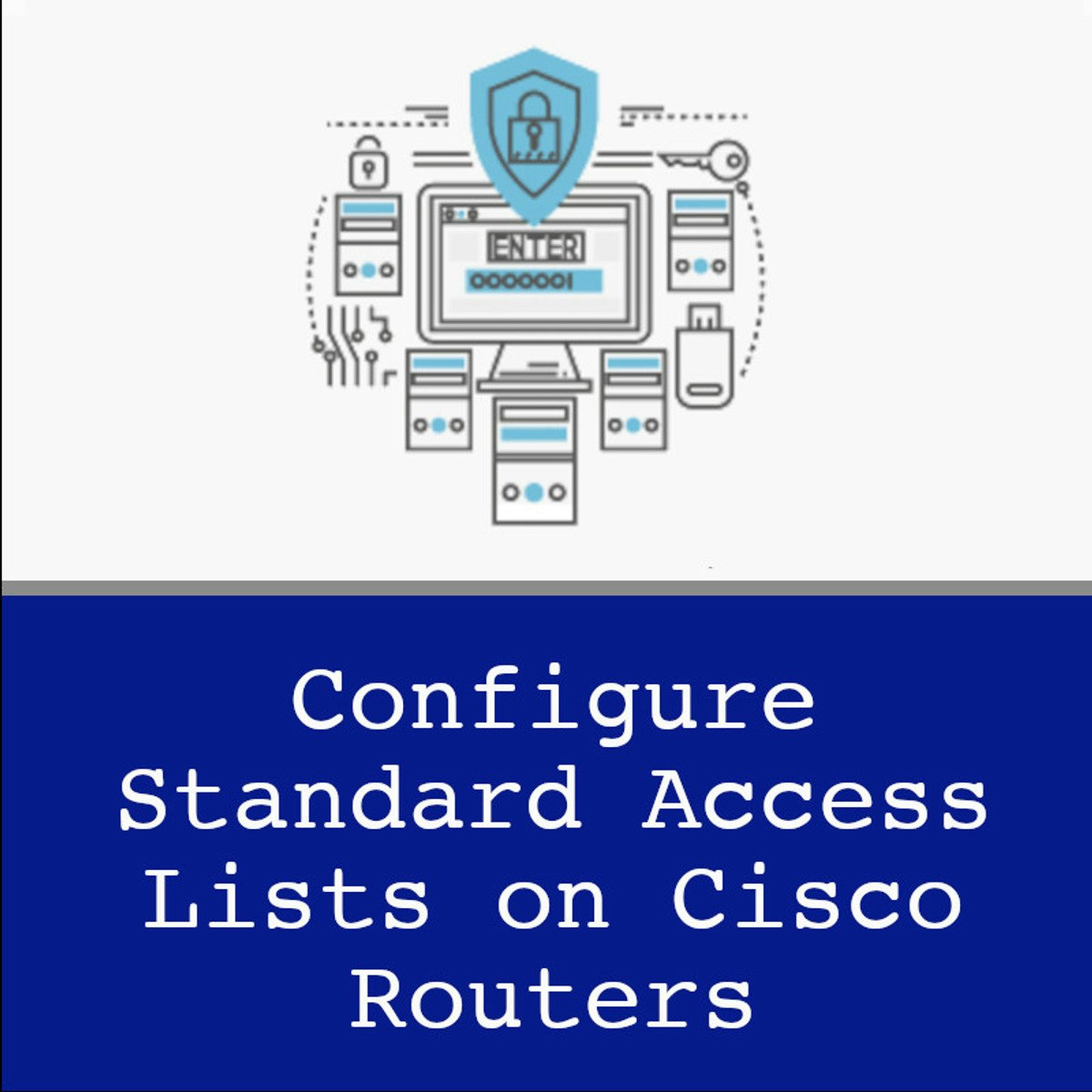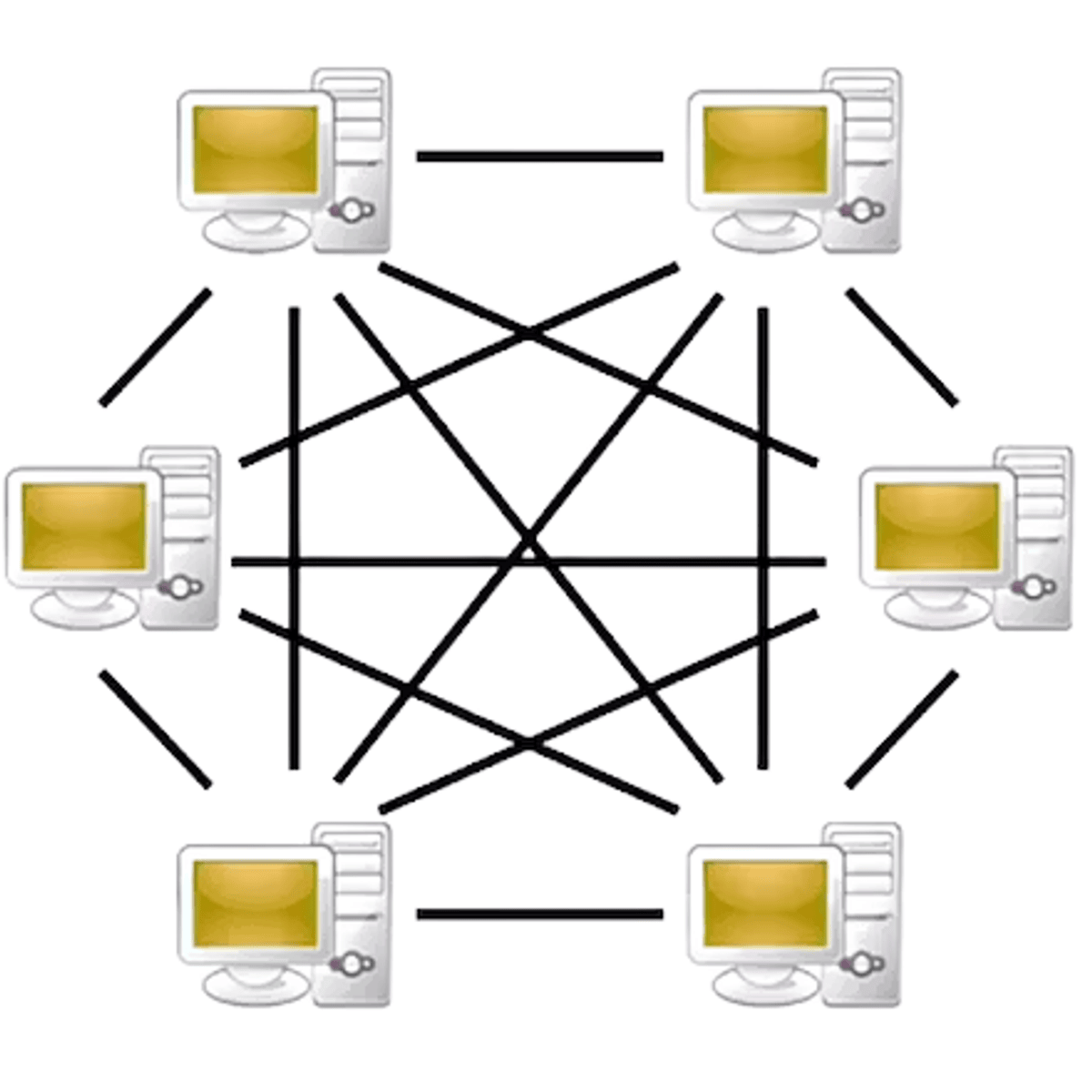Network Analyst
Exploring a Career as a Network Analyst
A Network Analyst is a technology professional responsible for the design, implementation, maintenance, and security of an organization's computer networks. They ensure that data flows efficiently and securely between computers, servers, and other networked devices. Think of them as the guardians and optimizers of the digital highways that businesses rely on every day. Their work ensures that employees can communicate, access information, and use critical software applications seamlessly.
Working as a Network Analyst can be quite engaging. You'll often find yourself solving complex puzzles, troubleshooting issues that impact business operations, and staying ahead of the curve with rapidly evolving technologies. The role often involves a mix of hands-on technical work, strategic planning, and collaboration with other IT professionals, making it a dynamic and intellectually stimulating career choice.
Introduction to Network Analysis
This section delves into the fundamentals of network analysis, providing a clear picture of what the field entails and how it fits within the broader technology landscape.
What is Network Analysis?
Network analysis, in the context of this career, involves examining and managing computer networks to ensure they operate optimally and meet the organization's needs. The core objective is to maintain network performance, availability, and security. This includes monitoring network traffic, identifying bottlenecks or potential issues, planning for capacity upgrades, and implementing security measures.
Analysts use specialized tools and techniques to visualize network structures, analyze data packets, and diagnose problems. They translate business requirements into technical network specifications and ensure the infrastructure can support current and future demands. Ultimately, their goal is to provide a reliable and efficient network environment that supports business goals.
Understanding network analysis means grasping how different components—like routers, switches, firewalls, and servers—interconnect and communicate. It's about seeing the network not just as cables and devices, but as a complex system that requires careful planning, monitoring, and management to function effectively.
The Evolution of Network Analysis
Network analysis as a distinct discipline emerged alongside the growth of computer networking itself. Early networks in the 1960s and 70s were relatively simple, but as technologies like Ethernet and the TCP/IP protocol suite became widespread in the 80s and 90s, networks grew larger and more complex. This complexity drove the need for specialized roles focused on managing and optimizing these intricate systems.
The rise of the internet dramatically increased the scale and importance of networks, demanding more sophisticated analysis and management techniques. Tools evolved from basic command-line utilities to complex graphical software suites capable of monitoring vast infrastructures. The advent of wireless networking, cloud computing, and the Internet of Things (IoT) has further reshaped the field, requiring analysts to adapt to new architectures and security challenges.
Today, network analysis incorporates concepts from data science, cybersecurity, and automation. Modern analysts must understand not only traditional network hardware and protocols but also virtualized environments, cloud services, and the security implications of an increasingly interconnected world. The field continues to evolve rapidly, driven by technological innovation.
Where Do Network Analysts Work?
Network Analysts are essential in nearly every industry that relies on computer systems. Financial institutions need robust and secure networks for transactions and data protection. Healthcare organizations depend on reliable networks for patient records and medical systems. Educational institutions require networks to support students, faculty, and research.
Technology companies, telecommunications providers, and large enterprises often employ teams of network analysts to manage their extensive infrastructures. Government agencies, both civilian and defense-related, also rely heavily on network analysts to maintain secure and efficient communication systems. Essentially, any organization with a significant IT infrastructure likely needs network analysis expertise.
Other common employers include consulting firms that provide network services to other businesses, managed service providers (MSPs), and retail groups. The demand spans across various sectors, reflecting the universal reliance on networked systems in the modern economy.
According to data gathered by Coursera and Zippia, some of the highest-paying industries for network analysts include aerospace and defense, legal services, management consulting, manufacturing, and insurance.
Some top companies known to employ network analysts include technology giants, financial services firms, and major defense contractors such as Visa, Mastercard, IBM, Lockheed Martin, and AT&T.
Network Analysis vs. Related Fields
While related, network analysis differs from other IT roles. A Network Administrator typically focuses on the day-to-day operations and maintenance of an existing network – tasks like managing user accounts, applying updates, and performing backups. Network analysts often have a broader scope, including design, optimization, and strategic planning alongside troubleshooting.
Network Engineers often overlap with analysts but may lean more heavily towards the design and implementation of new network infrastructure. They build the networks that analysts optimize and maintain. However, titles can be fluid, and responsibilities often blend depending on the organization's size and structure.
Data analysis focuses on extracting insights from datasets, which might include network data, but the scope is usually broader and less focused on infrastructure performance. Cybersecurity professionals specialize in protecting networks and systems from threats, a key concern for network analysts, but cybersecurity roles involve a deeper focus on threat detection, incident response, and security architecture.
Core Responsibilities of a Network Analyst
Understanding the day-to-day tasks of a Network Analyst provides crucial insight into the practical demands of the role.
Monitoring and Optimizing Network Performance
A primary duty of a network analyst is continuous monitoring of network performance. This involves using specialized software and tools to track key metrics like bandwidth utilization, latency, packet loss, and device uptime. The goal is to ensure the network runs smoothly and efficiently, meeting the demands of users and applications.
Analysts proactively look for signs of congestion, slowdowns, or potential failures. They analyze trends in network traffic to anticipate future needs and identify areas for improvement. Optimization might involve adjusting configurations, upgrading hardware, or recommending changes to network architecture.
This requires a deep understanding of network protocols and how different types of traffic impact performance. Analysts must interpret complex data and translate it into actionable insights to keep the network performing at its peak.
Troubleshooting Network Infrastructure Issues
When network problems arise—ranging from a single user's connectivity issue to a major outage—the network analyst is often responsible for diagnosing and resolving the issue. This involves a systematic approach to identify the root cause, whether it's a faulty cable, a misconfigured router, a software bug, or an external disruption.
Troubleshooting requires strong analytical and problem-solving skills, along with proficiency in using diagnostic tools like packet analyzers (e.g., Wireshark) and network monitoring systems. Analysts must work logically through potential causes, often under pressure, to restore service as quickly as possible.
Effective troubleshooting also involves documenting the problem and the solution to build a knowledge base and prevent future occurrences. This blend of technical expertise and methodical investigation is central to the role.
These resources can help you understand the tools and methods used for network troubleshooting.
These books provide practical guidance on network security monitoring and analysis techniques.
Collaborating with IT Teams on Security Protocols
Network security is a critical aspect of a network analyst's responsibilities. While dedicated security teams often exist, analysts play a vital role in implementing and maintaining security protocols within the network infrastructure. This includes configuring firewalls, managing access control lists (ACLs), and ensuring switches and routers are securely configured.
Analysts collaborate closely with cybersecurity specialists to identify vulnerabilities, respond to security incidents, and implement security policies. They need a solid understanding of common network threats and security best practices to protect sensitive data and maintain network integrity.
This collaboration ensures that network design and operation align with the organization's overall security posture. Analysts help bridge the gap between network functionality and security requirements.
Documenting Network Configurations and Changes
Accurate and up-to-date documentation is crucial for effective network management. Network analysts are responsible for meticulously documenting network configurations, including device settings, IP addressing schemes, VLAN layouts, and physical connections. This documentation serves as a vital reference for troubleshooting, planning, and audits.
Whenever changes are made to the network—such as adding new equipment, upgrading software, or modifying configurations—analysts must update the documentation accordingly. This ensures that all team members have access to current information about the network's state.
Creating clear network diagrams using tools like Microsoft Visio is also a common task. Good documentation practices prevent errors, facilitate collaboration, and ensure consistency in network management. It's an essential, though sometimes overlooked, aspect of the role.
This course focuses specifically on using Visio for network documentation.
Technical Skills and Tools for Network Analysts
Mastering specific technical skills and becoming proficient with industry-standard tools are essential for success as a Network Analyst.
Proficiency in Network Protocols (TCP/IP, DNS, DHCP)
A deep understanding of core networking protocols is fundamental. The TCP/IP suite forms the backbone of most modern networks, and analysts must know how protocols like IP (Internet Protocol), TCP (Transmission Control Protocol), and UDP (User Datagram Protocol) function to route and deliver data reliably.
Knowledge of essential network services like DNS (Domain Name System), which translates domain names into IP addresses, and DHCP (Dynamic Host Configuration Protocol), which automatically assigns IP addresses to devices, is also critical. Analysts troubleshoot issues related to these protocols daily.
Understanding routing protocols like OSPF (Open Shortest Path First) and BGP (Border Gateway Protocol) is necessary for managing larger, more complex networks. Proficiency in these areas allows analysts to design, configure, and troubleshoot networks effectively.
ELI5: Understanding TCP/IP
Imagine you want to send a big Lego castle to your friend across town. TCP/IP is like the postal service for computers.
First, you break the big castle into smaller, numbered boxes (this is like TCP breaking data into packets). Each box gets your friend's address and your return address (like IP addressing).
The mail trucks (like routers) figure out the best roads (network paths) to take each box. They might not all travel the same route or arrive in order.
When the boxes arrive, your friend (the receiving computer) uses the numbers to put the castle back together in the right order (TCP ensures data integrity). If a box is missing, your friend asks you to resend it (TCP handles retransmission).
So, TCP/IP works together: IP gets the data packets to the right computer, and TCP makes sure all the pieces arrive correctly and are put back together.
These courses provide a solid foundation in networking protocols and concepts.
These books offer comprehensive coverage of networking principles and protocols.
Familiarity with Network Analysis and Monitoring Tools
Network analysts rely heavily on specialized tools. Packet analyzers like Wireshark are indispensable for capturing and inspecting network traffic in detail, helping diagnose complex protocol-level issues. Proficiency with Wireshark is a highly valued skill.
Network monitoring systems (NMS) such as SolarWinds, Nagios, PRTG, or Zabbix provide real-time visibility into network performance and health. These tools collect data from network devices, alert administrators to problems, and generate performance reports. Analysts use these systems daily to keep tabs on the network.
Other important tools include command-line utilities (like ping, traceroute, ipconfig/ifconfig, netstat), network mapping software, and performance testing tools. Familiarity with a range of these tools is essential for effective analysis and troubleshooting.
These courses focus on specific tools commonly used in network analysis.
This book is a good starting point for learning Wireshark.
Understanding of Cloud Networking
As organizations increasingly adopt cloud services, understanding cloud networking concepts is becoming crucial for network analysts. This includes familiarity with the networking features offered by major cloud providers like Amazon Web Services (AWS), Microsoft Azure, and Google Cloud Platform (GCP).
Analysts need to understand concepts like Virtual Private Clouds (VPCs), subnets, security groups, network load balancers, and VPN connections within cloud environments. They may be involved in designing, implementing, and troubleshooting hybrid networks that connect on-premises infrastructure with cloud resources.
Knowledge of Software-Defined Networking (SDN) and Network Function Virtualization (NFV), which are foundational to many cloud networking technologies, is also increasingly important.
Scripting Basics for Automation
While not always mandatory, basic scripting skills are becoming increasingly valuable for network analysts. Automation helps streamline repetitive tasks, improve efficiency, and reduce human error. Languages like Python and PowerShell are commonly used for network automation.
Analysts might use scripts to automate device configuration backups, perform bulk configuration changes, parse log files, or run diagnostic tests. Even a basic understanding of scripting can significantly enhance productivity.
As networks become more complex and software-defined approaches gain traction, the ability to automate tasks using scripting or dedicated network automation tools will likely become even more essential for network analysts.
Formal Education Pathways
Structured education provides a strong foundation for a career in network analysis, though different paths exist.
Relevant Undergraduate Degrees
Many employers prefer network analysts to have a bachelor's degree in a relevant field. Common choices include Computer Science, Information Technology (IT), Telecommunications, Computer Engineering, or Information Systems. These programs typically cover foundational concepts in computing, networking protocols, operating systems, and security.
A degree provides a structured learning environment and theoretical understanding that complements practical skills. Coursework often includes mathematics, programming, database management, and systems analysis, providing a well-rounded technical background. Some programs may offer specialized tracks or courses in network administration or cybersecurity.
While a degree is often preferred, it's not always a strict requirement, especially if a candidate possesses significant practical experience and relevant certifications. However, a bachelor's degree can be advantageous for career advancement opportunities.
Data suggests that individuals with higher degrees tend to earn more on average. According to Zippia data cited by Coursera, network analysts with a master's degree earn roughly $76,231 annually, compared to $73,688 for those with a bachelor's degree and $67,036 for those with an associate degree.
Industry Certifications
Industry certifications are highly valued in the networking field and often complement formal education. They demonstrate specific knowledge and practical skills with particular technologies or vendor platforms. For aspiring network analysts, foundational certifications are a great starting point.
The CompTIA Network+ is a widely recognized vendor-neutral certification covering fundamental networking concepts, troubleshooting, and security. The Cisco Certified Network Associate (CCNA) is another popular and highly respected certification, focusing on configuring and managing Cisco networking equipment, a common choice in many enterprises.
Other relevant certifications include those from Juniper (like JNCIA), Microsoft (related to Azure networking), and AWS (like the AWS Certified Advanced Networking - Specialty). Obtaining certifications can significantly boost your resume and demonstrate commitment to the field.
These courses specifically prepare learners for key industry certifications like CompTIA Network+ and Cisco CCNA.
Graduate Programs and Specializations
For those seeking deeper expertise or aiming for research or highly specialized roles, a master's degree or even a Ph.D. can be beneficial. Graduate programs often allow specialization in areas like network architecture, network security, wireless communications, or network management.
A master's degree can provide advanced theoretical knowledge and research skills. It might cover topics like advanced routing protocols, network performance analysis, design of complex networks, and emerging technologies. This level of education can open doors to senior engineering, architecture, or research positions.
While less common for typical network analyst roles, a Ph.D. is relevant for those interested in academic research, teaching at the university level, or working in cutting-edge research and development within industry labs. Graduate studies deepen understanding and contribute to the advancement of networking technologies.
This course provides a glimpse into graduate-level network studies.
Research Opportunities in Academia
Academic institutions are hubs for research in networking. Faculty and graduate students explore new protocols, security mechanisms, network architectures, and performance optimization techniques. Research areas might include wireless sensor networks, software-defined networking (SDN), network virtualization, quantum networking, or the application of AI to network management.
Students pursuing graduate degrees often participate in research projects, contributing to publications and advancements in the field. This provides invaluable experience in tackling complex problems, designing experiments, and analyzing results. Research opportunities allow for deep dives into specific areas of networking.
Even for those not pursuing a graduate degree, staying aware of academic research can provide insights into future trends and technologies. University research often pioneers the innovations that eventually make their way into industry practice.
Online Learning and Self-Directed Training
Beyond formal degrees, online resources offer flexible and accessible pathways to acquire network analysis skills, whether you're starting fresh or upskilling.
Can You Become a Network Analyst Through Self-Teaching?
Yes, it is possible to build a foundation for a network analyst career through self-directed learning, particularly using online courses and resources. Many successful professionals in IT have non-traditional backgrounds. Dedication, discipline, and a structured approach are key.
Online platforms provide access to courses covering networking fundamentals, specific technologies, vendor certifications, and practical skills. Combining theoretical learning with hands-on practice using simulators (like Cisco Packet Tracer) or home lab setups is crucial. Building a portfolio of projects can demonstrate practical competence to potential employers.
While some employers may still prefer formal degrees, demonstrable skills, certifications, and hands-on experience gained through self-study can make you a competitive candidate, especially for entry-level roles or when pivoting from another technical field. It requires significant self-motivation, but the resources are available.
OpenCourser offers tools to help self-directed learners. You can search across thousands of courses, compare syllabi, read summarized reviews, and use the "Save to List" feature to curate your own learning path.
Project-Based Learning for Hands-On Experience
Theoretical knowledge is essential, but practical experience is what truly solidifies understanding and impresses employers. Engaging in project-based learning is an excellent way to apply concepts learned through courses or books.
Set up a home lab using virtual machines or inexpensive hardware to practice configuring routers, switches, and firewalls. Use network simulation tools like Cisco Packet Tracer or GNS3 to build and troubleshoot virtual networks. Contribute to open-source networking projects if possible.
Consider projects like setting up a secure home network, configuring a VPN, analyzing traffic patterns using Wireshark, automating a network task with Python, or building a small network topology in a simulator and documenting it thoroughly. These projects serve as tangible proof of your skills.
OpenCourser often features courses that are project-based or include hands-on labs, allowing you to gain practical skills directly.
These courses emphasize hands-on labs and projects, providing valuable practical experience.
Supplementing Formal Education with Online Resources
Online courses are not just for self-starters; they are also powerful tools for supplementing formal education. University courses provide strong theoretical foundations, but online resources can offer practical skills, cover emerging technologies not yet in the curriculum, or prepare you for specific industry certifications.
Students can use online courses to get hands-on practice with specific vendor equipment (like Cisco or Juniper), learn scripting languages relevant to networking (like Python), or dive deeper into specialized topics like cloud networking or cybersecurity ahead of formal coursework.
Working professionals can use online learning to stay current with the rapidly evolving technology landscape, acquire new skills for career advancement, or prepare for certifications that enhance their credentials. It's a flexible way to engage in lifelong learning, essential in the tech field.
The OpenCourser Learner's Guide provides tips on integrating online courses effectively, whether you're a student, professional, or lifelong learner.
These courses cover fundamental and advanced networking topics, suitable for supplementing formal education or professional development.
Evaluating Online Course Quality and Relevance
With thousands of online courses available, choosing the right ones is important. Evaluate courses based on their alignment with your learning goals. Does the syllabus cover the specific skills or topics you need? Is the level appropriate (beginner, intermediate, advanced)?
Consider the instructor's credentials and experience, as well as the reputation of the platform or institution offering the course. Look for courses with recent updates, especially in a fast-moving field like networking. Check reviews from other learners, but read them critically, considering different perspectives.
Hands-on labs, projects, and opportunities for interaction (like forums or Q&A) add significant value. OpenCourser aids this process by providing detailed course information, summaries of learner reviews, and features like "Traffic Lights" that highlight potential strengths and weaknesses, helping you make informed choices.
For budget-conscious learners, exploring OpenCourser Deals can uncover savings on relevant courses.
Career Progression for Network Analysts
A career as a Network Analyst offers various paths for growth and specialization within the broader IT landscape.
Entry-Level Roles
While some sources suggest Network Analyst is a more senior role, pathways often begin with related entry-level positions. Roles like IT Support Specialist, Help Desk Technician, or Network Technician provide foundational experience in troubleshooting user issues, understanding network basics, and working with IT infrastructure.
These initial roles expose individuals to real-world network environments and common problems. Experience gained here, combined with certifications like CompTIA Network+ or CCNA, can pave the way for a transition into a dedicated Network Analyst position. Some organizations might offer junior analyst roles or internal training programs.
Gaining experience often involves starting with assisting senior analysts, performing routine monitoring tasks, handling basic troubleshooting tickets, and learning the specific tools and procedures used by the organization. On-the-job training is common due to the unique nature of each company's network.
Mid-Career Paths
With experience, Network Analysts can advance to more senior roles. A Senior Network Analyst typically handles more complex troubleshooting, takes the lead on optimization projects, mentors junior staff, and contributes to network design decisions. They possess deeper technical expertise and a broader understanding of the network infrastructure.
Another common progression is towards a Network Engineer role, focusing more heavily on designing, implementing, and upgrading network infrastructure. Some may specialize further, becoming Network Architects who design large-scale network solutions aligned with business strategy.
These mid-career roles often require several years of experience, advanced certifications (like CCNP - Cisco Certified Network Professional), and a proven track record of successfully managing and improving network performance and reliability.
These courses cover advanced topics relevant to mid-career progression, such as CCNP-level skills.
Leadership Opportunities
Experienced Network Analysts or Engineers can move into leadership positions. An IT Manager or Network Manager role involves overseeing the entire network team, managing budgets, setting strategic direction for the network infrastructure, and liaising with other department heads.
Further advancement could lead to roles like Director of IT Infrastructure or even Chief Technology Officer (CTO) in smaller organizations, although these roles require broader technical and business leadership skills beyond just networking.
Leadership roles demand strong communication, project management, and people management skills in addition to technical expertise. Pursuing management training or an MBA might be beneficial for those aiming for senior leadership positions.
Transitioning to Adjacent Fields
The skills and experience gained as a Network Analyst provide a solid foundation for transitioning into related IT fields. Cybersecurity is a common path, as analysts already possess deep knowledge of network infrastructure and security principles. Roles like Security Analyst, Penetration Tester, or Security Engineer are possibilities.
DevOps is another growing field where network skills are valuable, particularly with the rise of network automation and Infrastructure as Code (IaC). Cloud computing roles, such as Cloud Network Engineer or Cloud Architect, are also natural progressions given the increasing importance of cloud platforms.
Other potential transitions include systems administration, database administration, or technical project management, depending on individual interests and acquired skills.
Emerging Trends in Network Analysis
The field of network analysis is constantly evolving, influenced by broader technological shifts and changing business needs.
Impact of 5G and IoT
The widespread adoption of 5G technology and the exponential growth of Internet of Things (IoT) devices are significantly impacting network demands. 5G promises higher speeds and lower latency, enabling new applications but also requiring network infrastructure upgrades and more sophisticated management.
The sheer volume of connected IoT devices generates vast amounts of data and introduces new security challenges. Network analysts must understand how to manage and secure these diverse devices, ensure sufficient network capacity, and handle the unique traffic patterns they create.
These trends necessitate analysts to adapt their monitoring and optimization strategies to accommodate massive scale, diverse device types, and heightened security risks. Familiarity with technologies supporting IoT and 5G becomes increasingly important.
AI-Driven Network Optimization
Artificial Intelligence (AI) and Machine Learning (ML) are transforming network management and analysis. AI-powered tools, often referred to as AIOps (AI for IT Operations), can analyze network data more quickly and deeply than humans, identifying subtle patterns, predicting potential failures, and automating troubleshooting tasks.
These tools can help automate routine monitoring, optimize traffic routing in real-time, dynamically allocate resources, and enhance security through intelligent threat detection. As noted in reports from EDGE360 and Mesh-AI, AI significantly enhances efficiency and proactive issue resolution.
Network analysts will increasingly work alongside AI systems, needing skills to interpret AI-driven insights, manage these tools, and potentially develop or customize AI models for specific network needs. This shift requires adapting skills to leverage AI effectively.
Remote Work Infrastructure Challenges
The rise of remote and hybrid work models has placed new demands on network infrastructure and analysis. Ensuring secure, reliable, and performant connectivity for a distributed workforce requires careful planning and management.
Analysts must address challenges related to VPN capacity and performance, securing home networks accessing corporate resources, managing cloud application access, and troubleshooting issues for users outside the traditional office environment. The network edge has effectively expanded to include countless remote locations.
This requires a focus on secure remote access solutions, cloud security, and monitoring tools capable of providing visibility into user experiences regardless of location. Implementing Zero Trust security architectures is becoming increasingly common to address these challenges.
Sustainability in Network Design
Environmental sustainability is becoming an increasingly important consideration in IT infrastructure, including networking. Network equipment consumes significant amounts of energy, contributing to carbon footprints. There is a growing trend towards designing and operating more energy-efficient networks.
This involves selecting energy-efficient hardware, optimizing network configurations to reduce power consumption during low-traffic periods, and considering the environmental impact of data center operations. Network virtualization and consolidation can also contribute to energy savings.
Network analysts may be involved in evaluating the energy efficiency of different solutions, implementing power-saving features, and contributing to broader organizational sustainability goals. This trend reflects a growing awareness of the environmental responsibilities associated with technology infrastructure.
Ethical and Security Considerations
Network analysts operate in a position of trust, handling sensitive data and critical infrastructure, which brings unique ethical and security responsibilities.
Data Privacy Regulations
Network analysts must be aware of and comply with relevant data privacy regulations, such as the General Data Protection Regulation (GDPR) in Europe or the Health Insurance Portability and Accountability Act (HIPAA) in the US healthcare sector. These regulations govern how personal data is collected, processed, stored, and protected.
Compliance involves ensuring network configurations and security measures adequately protect sensitive data traversing the network. Analysts may need to implement specific controls, participate in audits, and understand how network monitoring activities intersect with privacy requirements.
Ignoring or mishandling data privacy can lead to significant legal and financial consequences for the organization, making awareness and adherence to these regulations a critical part of the role.
Mitigating Network Vulnerabilities
Identifying and mitigating network vulnerabilities is a core security function for network analysts. This involves staying informed about common attack vectors, regularly scanning the network for weaknesses, and applying patches and configuration changes to address identified vulnerabilities.
Collaboration with cybersecurity teams is essential for understanding the threat landscape and implementing effective countermeasures. Analysts play a key role in ensuring firewalls, intrusion detection/prevention systems (IDPS), and other security devices are properly configured and maintained.
Proactive vulnerability management helps prevent security breaches, data loss, and service disruptions, protecting the organization's assets and reputation.
Balancing User Access with Security
Network analysts often face the challenge of balancing the need for users to easily access network resources with the imperative to maintain strong security. overly restrictive security measures can hinder productivity, while lax security opens the door to threats.
This requires careful consideration when designing network segments, configuring access controls (like ACLs and firewall rules), and implementing authentication mechanisms. The principle of least privilege—granting users only the access necessary for their roles—is a key guideline.
Finding the right balance involves understanding business requirements, assessing risks, and implementing controls that are effective yet minimally disruptive. Strong communication skills are needed to explain security policies and procedures to users.
Ethical Implications of Network Monitoring
Network monitoring tools provide deep visibility into network traffic, which can include user activity and communications. This raises ethical considerations regarding employee privacy. Network analysts must use these tools responsibly and ethically, adhering to company policies and relevant laws.
Monitoring should primarily focus on network performance, security, and troubleshooting, not on surveilling individual employees without justification. Clear policies regarding network monitoring should be established and communicated to employees.
Analysts must handle the data collected through monitoring with confidentiality and integrity, ensuring it is used only for legitimate network management purposes. Maintaining trust and respecting privacy are essential ethical responsibilities.
Frequently Asked Questions (Career Focus)
Here are answers to some common questions about pursuing a career as a Network Analyst.
Is a degree mandatory to become a Network Analyst?
While many employers prefer a bachelor's degree in a related field like Computer Science or IT, it's not always strictly mandatory. Strong practical skills, relevant industry certifications (like CompTIA Network+ or Cisco CCNA), and demonstrable experience can often substitute for a formal degree, especially for entry-level positions or when transitioning from another IT role.
However, a degree provides a solid theoretical foundation and can be beneficial for long-term career advancement, particularly into management or specialized architecture roles. Some organizations, especially larger enterprises or government agencies, may have stricter educational requirements.
Ultimately, a combination of education, certification, and hands-on experience provides the strongest profile for aspiring network analysts.
How does this role differ from a Network Administrator?
The roles often overlap, but generally, a Network Administrator focuses more on the day-to-day operation and maintenance of an existing network. This includes managing user accounts, applying patches, ensuring uptime, performing backups, and handling routine troubleshooting.
A Network Analyst often has a broader scope that includes analyzing network performance, identifying optimization opportunities, planning for future capacity needs, designing network segments, and sometimes taking a lead role in complex troubleshooting. They may be more involved in the strategic aspects of the network.
Think of it this way: the administrator keeps the network running daily, while the analyst looks at how to make it run better and meet future needs. However, in smaller organizations, one person might perform both sets of duties.
What industries hire the most Network Analysts?
Network Analysts are needed across a wide range of industries due to the near-universal reliance on computer networks. However, certain sectors have particularly high demand.
Key industries include Information Technology and Services, Telecommunications, Financial Services (banking, insurance), Healthcare, Education (universities, school districts), Government (local, state, federal), and large Manufacturing or Retail companies.
Consulting firms and Managed Service Providers (MSPs) that offer network services to other businesses are also significant employers. Essentially, any organization with a substantial IT infrastructure requires network expertise.
Can this role transition to remote work?
Yes, many Network Analyst roles can be performed remotely, especially tasks involving monitoring, configuration, troubleshooting software issues, and analysis. The widespread adoption of remote work has increased opportunities for remote network management.
However, some tasks might require physical presence, such as installing or repairing hardware (routers, switches, cables), setting up new physical infrastructure, or troubleshooting certain types of connectivity issues that require hands-on diagnosis.
Hybrid models, combining remote work with occasional office visits for specific tasks, are becoming common. Fully remote positions exist but may be more prevalent in organizations with mature remote work policies and cloud-centric infrastructure.
What are the most stressful aspects of the job?
Like many IT roles, being a Network Analyst can have stressful moments. Network outages or performance issues can directly impact business operations, creating pressure to resolve problems quickly and effectively, sometimes outside of normal working hours (on-call duties are common).
Troubleshooting complex, intermittent issues can be frustrating. Keeping up with the rapid pace of technological change requires continuous learning, which can feel demanding. Balancing security requirements with user accessibility needs can also create tension.
Managing large-scale network upgrades or migrations involves significant planning and potential risks if things go wrong. However, the satisfaction of solving challenging problems and ensuring smooth network operations often outweighs the stress for those suited to the role.
How does automation threaten or enhance this career?
Automation, particularly driven by AI, is changing the role, but it's more likely to enhance rather than eliminate it for skilled professionals. AI and automation tools can handle many routine monitoring, configuration, and basic troubleshooting tasks more efficiently than humans, reducing manual workload.
This frees up analysts to focus on more complex, strategic tasks like network design, capacity planning, advanced security analysis, managing automation systems, and interpreting AI-driven insights. The role may shift towards higher-level analysis and oversight of automated systems.
Analysts who embrace automation, learn scripting skills, and understand how to leverage AI tools will be well-positioned for the future. Those who resist adapting may find their roles more limited over time. Automation enhances the capabilities of skilled analysts, making them more valuable.
Concluding Thoughts
Embarking on a career as a Network Analyst offers a path into the critical backbone of modern technology infrastructure. It's a field that demands continuous learning, strong analytical skills, and the ability to solve complex problems, often under pressure. While challenging, it provides the satisfaction of keeping vital systems running and contributing directly to an organization's success.
Whether you pursue formal education, industry certifications, or self-directed online learning, the key is building a solid foundation in networking principles and gaining hands-on experience. The journey requires dedication, but for those fascinated by how data travels and how systems connect, it can be a rewarding and dynamic career with ample opportunities for growth and specialization. With resources like OpenCourser's extensive catalog for IT & Networking, you can find the tools you need to start or advance your journey.



































